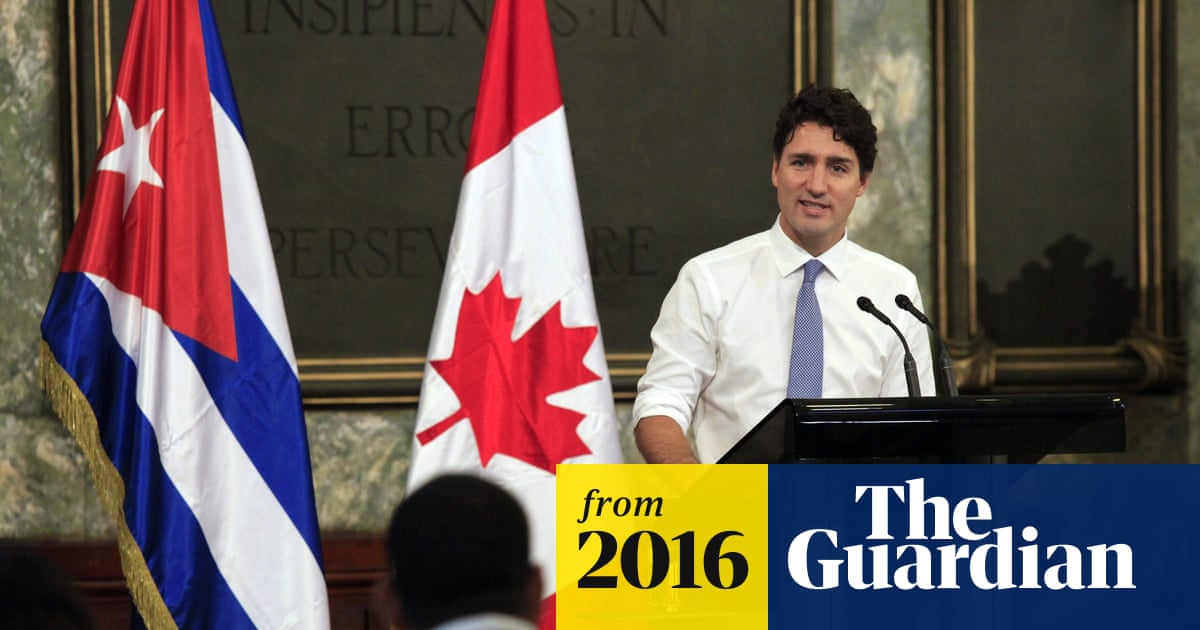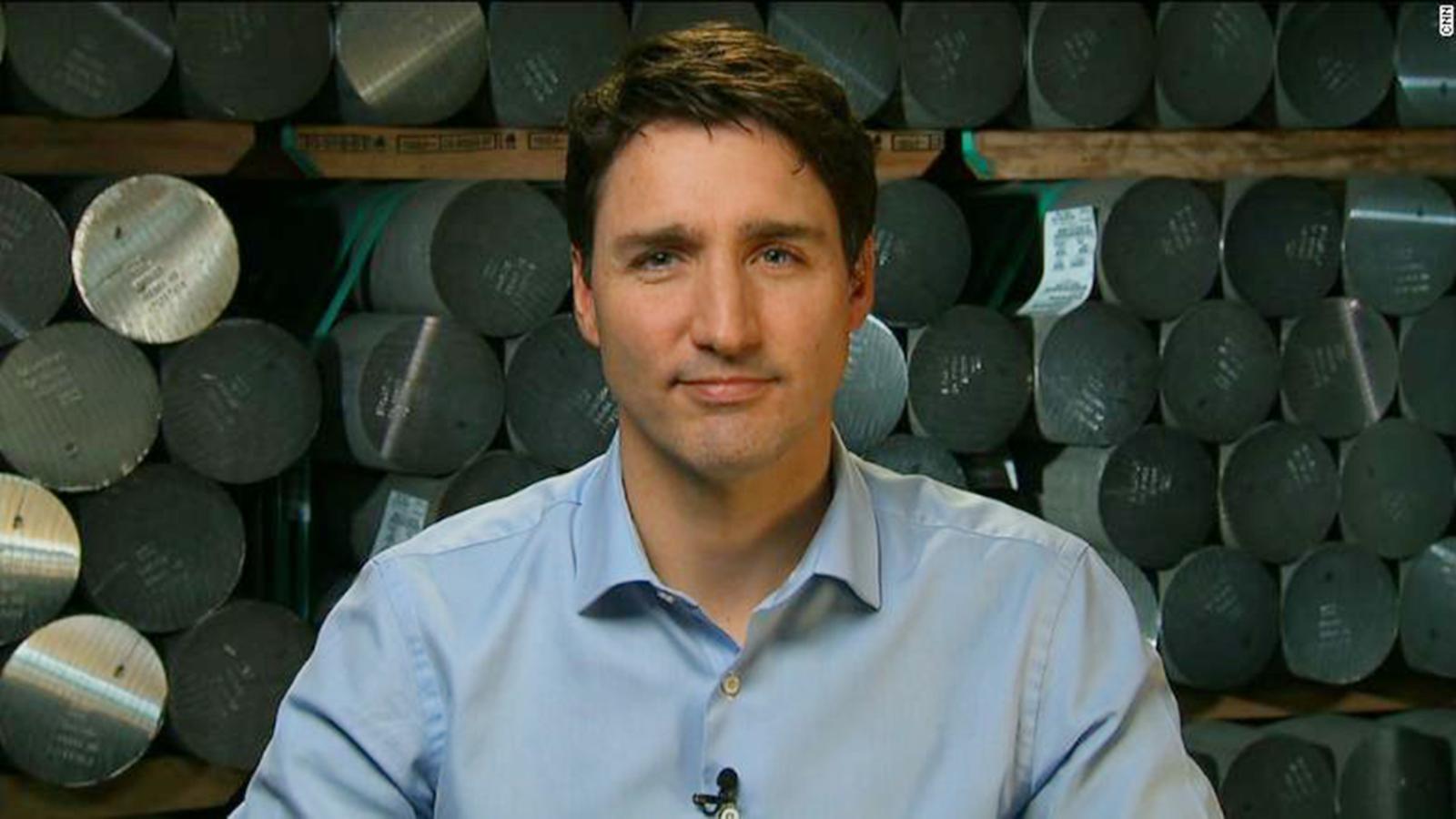Exploring The Leadership Of Justin Trudeau And Castro: A Global Perspective
Let's dive into a fascinating comparison of Justin Trudeau and Castro. These two leaders represent vastly different approaches to governance, yet both have left indelible marks on the global stage. Trudeau, the Prime Minister of Canada, champions progressive ideals, while Castro's legacy in Cuba is rooted in revolutionary socialism. This article will explore their connections, differences, and impacts on global diplomacy and leadership in a way that feels like we're having a casual chat over coffee.
When it comes to global politics, the stories of leaders who shape our world are endlessly intriguing. By examining the intersection between Justin Trudeau and Castro, we gain a unique perspective on leadership styles, cultural influences, and international relations. Think of this as a deep dive into how two very different leaders navigate the complexities of our world.
This article is your go-to guide for understanding the relationship between these two figures, their policies, and their influence on the global stage. Whether you're a political junkie, a curious student, or just someone who loves understanding world affairs, you'll find plenty of insights here. Let's get started!
Read also:Erika Scholtes A Rising Star Shining Bright In The Entertainment World
Table of Contents
- Biography of Justin Trudeau
- Background of Castro
- Political Comparisons
- Leadership Styles
- Economic Policies
- Diplomatic Relations
- Cultural Influences
- Public Opinion
- Historical Context
- Future Outlook
The Story of Justin Trudeau
Let me introduce you to Justin Trudeau, the charismatic Prime Minister of Canada. Since taking office in 2015, Trudeau has been a standout figure on the global stage. Here's a quick snapshot of his life and career:
| Full Name | Justin Pierre James Trudeau |
|---|---|
| Date of Birth | December 25, 1971 |
| Place of Birth | Ottawa, Ontario, Canada |
| Political Party | Liberal Party of Canada |
| Education | Bachelor's degree in Literature (McGill University), Teaching Certification (University of British Columbia) |
| Family | Son of Pierre Trudeau, former Canadian Prime Minister |
Trudeau's rise to power wasn't just a political shift; it was a cultural moment. His focus on progressive policies and international cooperation has resonated with people around the world, making him a beacon of modern leadership.
Early Life and Education
Justin Trudeau's journey began in a household steeped in politics. Growing up as the son of Pierre Trudeau, a legendary Canadian Prime Minister, Justin was surrounded by the world of governance and public service. This environment nurtured his passion for social justice and equality, shaping the leader he would become.
Political Career
In 2008, Trudeau made his political debut by winning a seat in Parliament. His progressive policies and magnetic personality quickly propelled him to the forefront of Canadian politics. Within just a few years, he was leading the Liberal Party and reshaping the political landscape of Canada. His leadership has been defined by a commitment to inclusivity and collaboration, earning him both praise and scrutiny.
The Castro Legacy in Cuba
On the other side of the world, the Castro family has been a dominant force in Cuban politics for decades. Fidel Castro and his brother Raúl have left an indelible mark on the island nation, steering it through turbulent times with a firm hand.
Fidel Castro's Revolutionary Spirit
Fidel Castro, who ruled Cuba for nearly five decades, was a polarizing figure. On one hand, he was celebrated for his commitment to healthcare, education, and economic equality. On the other, his regime faced criticism for human rights violations. His leadership was defined by a revolutionary fervor that sought to transform Cuba into a socialist utopia, albeit with significant challenges.
Read also:Clarence Gilyard The Journey Of A Hollywood Icon
Raúl Castro's Modernizing Touch
When Raúl Castro took over from his brother, he brought a fresh perspective to Cuban governance. Recognizing the need for change, he introduced economic reforms aimed at modernizing the socialist economy. His era marked a shift towards greater openness and engagement with the global community, signaling a new chapter for Cuba.
Comparing Trudeau and Castro
Now, let's compare these two leaders and see what we can learn from their vastly different approaches:
- Political Ideology: Trudeau champions progressive, liberal policies, while Castro's legacy is rooted in socialism and revolutionary ideals. It's like comparing apples and oranges—or maybe a smoothie and a Cuban cigar.
- Leadership Style: Trudeau is known for his inclusive, collaborative approach, whereas Castro's leadership was marked by authoritarian control. One emphasizes dialogue, the other decisive action.
- International Relations: Trudeau thrives on multilateralism and diplomacy, working closely with allies and international organizations. In contrast, Castro's era was characterized by tensions with Western powers, especially the United States.
Key Differences in Governance
The governance models of Canada and Cuba reflect the distinct philosophies of their leaders. While Canada values democracy and individual freedoms, Cuba has traditionally focused on state control and collective welfare. It's a reminder that there's no one-size-fits-all approach to leadership.
Understanding Leadership Styles
Leadership styles can make or break a nation's trajectory. Trudeau's approach is marked by transparency, inclusivity, and a willingness to listen. Castro's leadership, on the other hand, was defined by resilience, determination, and a commitment to national sovereignty. Both leaders have left a lasting impact, albeit through very different means.
Trudeau's Approach
Justin Trudeau's leadership style emphasizes collaboration and dialogue. He's not afraid to tackle tough issues like climate change, gender equality, and indigenous rights. His global recognition stems from his ability to bring people together and find common ground, even in divisive times.
Castro's Legacy
Castro's leadership was characterized by a fierce commitment to national sovereignty and resistance against external interference. Despite facing economic sanctions and political isolation, he managed to maintain Cuba's independence. His ability to navigate these challenges is nothing short of remarkable and has earned him admiration from many.
Economic Policies: A World Apart
Economic policies are a critical part of any leader's agenda. Trudeau and Castro have pursued entirely different approaches to economic development:
- Trudeau's Policies: Focus on sustainable growth, innovation, and social welfare programs. He believes in creating an economy that works for everyone, not just the privileged few.
- Castro's Policies: Emphasize state control, agricultural development, and healthcare infrastructure. While these policies have faced challenges, they've also left a lasting impact on Cuba's healthcare and education systems.
Impact on Society
While Trudeau's policies aim to create a balanced economy that benefits all citizens, Castro's legacy has left a profound impact on Cuba's healthcare and education systems. Despite economic hardships, Cuba remains a shining example of what can be achieved with limited resources.
Navigating Diplomatic Relations
Diplomatic relations are the lifeblood of global politics. Trudeau and Castro have approached international relations from vastly different perspectives:
Trudeau's Diplomacy
Justin Trudeau has prioritized strengthening ties with allies and promoting peace through international organizations like the United Nations. His efforts to address global issues such as climate change and refugee crises have earned him widespread praise. He believes in the power of collaboration and dialogue to solve the world's toughest challenges.
Castro's Influence
Castro's diplomatic strategy focused on building alliances with non-Western nations and resisting Western domination. He played a key role in the Non-Aligned Movement and other international forums, using his platform to champion the causes of developing nations. His leadership left a lasting mark on global diplomacy, even if it was often controversial.
Cultural Imprints
Culture shapes the way leaders are perceived and remembered. Trudeau and Castro have left distinct cultural legacies that continue to resonate today:
Trudeau's Impact
Trudeau's commitment to multiculturalism and diversity has struck a chord with Canadians and people around the world. His advocacy for LGBTQ+ rights and indigenous reconciliation reflects a vision of society that is inclusive and forward-thinking. He's not just a leader; he's a symbol of hope for a better, more equitable world.
Castro's Legacy
Castro's cultural influence is evident in Cuba's vibrant arts scene and commitment to preserving its revolutionary heritage. Despite economic hardships, Cuba remains a cultural powerhouse in Latin America. His leadership ensured that the nation's identity remained strong, even in the face of external pressures.
What Do the People Think?
Public opinion is the ultimate test of a leader's success. Trudeau and Castro have elicited mixed reactions from their respective populations:
Trudeau's Popularity
Justin Trudeau enjoys widespread support for his progressive policies, but like any leader, he's not without his critics. Some argue that his government has struggled to address issues like housing affordability and climate action. Still, his vision of a more inclusive Canada continues to inspire many.
Castro's Legacy
Castro's legacy is viewed through a complex lens. While many Cubans appreciate his efforts to improve healthcare and education, others criticize the lack of political freedoms and economic opportunities. It's a reminder that leadership is often a balancing act between ideals and reality.
The Bigger Picture
Understanding the historical context of Trudeau and Castro's leadership is essential for evaluating their impact:
Canada's Political Evolution
Canada's political landscape has evolved significantly over the years, with Trudeau representing a new generation of leaders focused on social justice and environmental sustainability. His vision for Canada is one that embraces diversity and tackles the challenges of our time head-on.
Cuba's Revolutionary Journey
Cuba's history is closely tied to the Castro family's leadership. The revolution of 1959 marked a turning point in the nation's trajectory, leading to decades of socialist governance and resistance against external pressures. It's a story of resilience and determination that continues to inspire people around the world.
Looking Ahead
The future of global politics will be shaped by leaders like Trudeau and Castro. As the world grapples with challenges such as climate change, inequality, and geopolitical tensions, the lessons from their leadership can guide future generations:
Justin Trudeau's emphasis on inclusivity and cooperation offers a blueprint for addressing global issues, while Castro's resilience and commitment to national sovereignty remind us of the importance of self-determination. Both leaders have shown us that leadership is about more than just holding power—it's about making a difference.
Key Takeaways
In conclusion, the intersection of Justin Trudeau and Castro provides valuable insights into the complexities of global leadership. While their approaches differ significantly, both leaders have left a lasting impact on their nations and the world. Whether it's through progressive policies or revolutionary ideals, their legacies continue to shape the global conversation.
Kesimpulan
Justin Trudeau Castro represents a fascinating exploration of two distinct leadership styles and their impact on global politics. From progressive policies to revolutionary ideals, this article has highlighted the key aspects of their legacies. It's a reminder that leadership is about vision, resilience, and the ability to inspire change.
We invite you to share your thoughts in the comments section and explore other articles on our website for more in-depth analyses of world affairs. Together, we can foster a deeper understanding of the leaders who shape our world.
For further reading, consult reputable sources such as United Nations, CIA World Factbook, and BBC News for up
Article Recommendations

